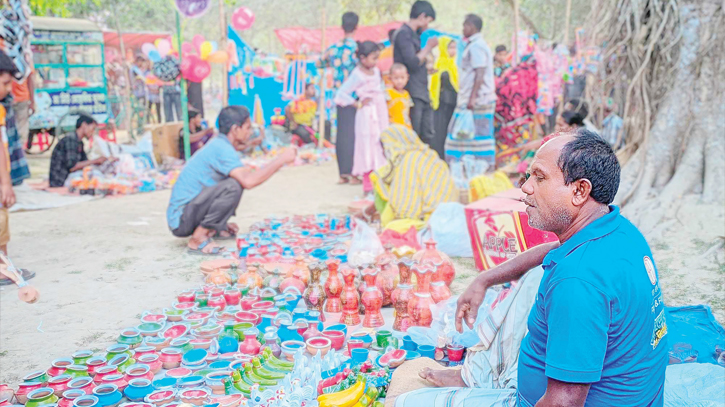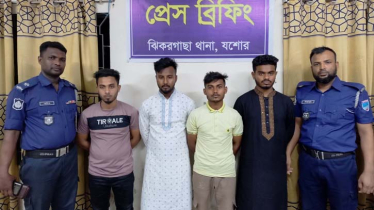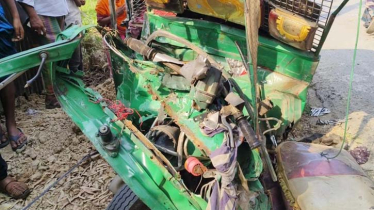
Photo: Messenger
Amidst the hustle and bustle of modern life, the century-old Thakurbari fair in Gaibandha continues to captivate crowds, offering a glimpse into the rich history and culture of the district. Lasting throughout the Bengali month of Baishakh, this traditional pastoral fair has become a cherished annual event, attracting visitors from far and wide.
Situated in Bhatpara village of Ramchandrapur Union, just seven kilometers south of Gaibandha district town, the Thakurbari fair envelops the entire village in festivity. Under the sprawling branches of century-old banyan trees, hundreds of small shops line the fairgrounds, offering a variety of goods from bahari products to daily necessities. As shoppers weave through the maze of stalls, the air is filled with excitement and the scent of mouth-watering food.
The fair is not merely a commercial venture but a spiritual one as well. On one side, the Nagardola spins joyfully, while on the other, devotees engage in worship of the Hindu gods Gaur-Nitai. It's a fusion of commerce and spirituality that has been a hallmark of the Thakurbari fair for generations.
Despite the march of modernity and the changing landscape of commerce, the Thakurbari fair has steadfastly preserved its essence for nearly one and a half centuries. While other Baisakhi fairs in Gaibandha may have lost their allure, this traditional fair continues to thrive, rooted in its rich heritage.
Although the fair is rooted in Hindu tradition, its appeal transcends religious boundaries. People from all walks of life flock to Thakurbari, drawn by the allure of civilization, culture, and the opportunity to connect with their roots. The age-old custom of inviting daughters, sons-in-law, and relatives to the fair further cements its status as a universal celebration.
Every Sunday and Thursday during the month of Baisakh, the fairgrounds teem with visitors from across the district, eager to partake in the festivities and indulge in the array of offerings. From clay ornaments to wooden dolls, from handcrafted toys to traditional delicacies, there's something for everyone at the Thakurbari fair.
Reflecting on the fair's history, Sujan Pal, a seasoned vendor, reminisces about his two decades of participation. While acknowledging the waning popularity of clay toys in the face of mass-produced plastic alternatives, he notes that the fair still holds a special place in the hearts of many, especially those seeking to preserve tradition.
For visitors like Shahidul Islam, the Thakurbari fair is more than just a marketplace; it's a nostalgic journey through time. Recalling fond memories of attending the fair with his father as a child, he now shares the experience with his own children, passing down a cherished tradition from one generation to the next.
As Sukumar Roy, a member of the organizing family, proudly attests, the Thakurbari fair is more than just a religious gathering—it's a universal festival that brings communities together in joyous celebration. With each passing year, it continues to weave its magic, preserving the heritage of Gaibandha for generations to come.
As the sun sets on another day at the Thakurbari fair, it leaves behind memories of laughter, camaraderie, and a deep connection to tradition. In an ever-changing world, this century-old gathering stands as a beacon of continuity, reminding us of the importance of honoring our past as we embrace the future.
Messenger/Fameema








